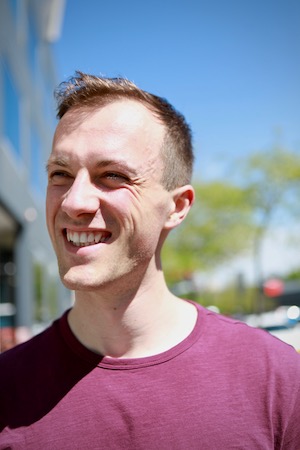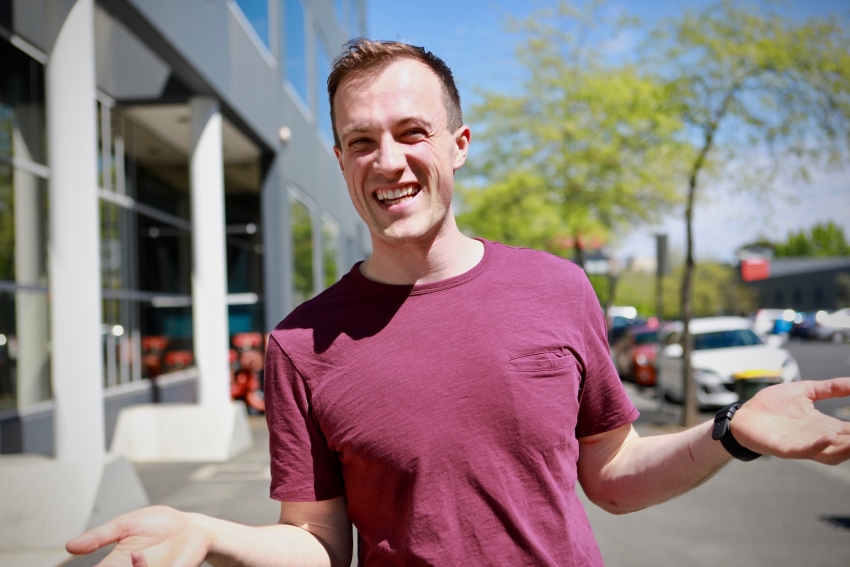Owning my identities
Throughout our lives, we will identify with many different groups. We apply many labels to ourselves to help understand who we are and what we do.
For example, only recently did I start identifying as a Spice Girls fan. I’d gone nearly 26 years without really listening to a single Spice Girls song but a colleague mentioned how great they are and now I’m hooked.
Of course, identity is more important than ensuring our music taste is on point! It defines so much of who we are and, more importantly, who we think we can be. Our identity guides the choices we make, the people we spend time with, and the future we see for ourselves.
Throughout my life, I’ve given myself many identities. Growing up gay and queer in a regional area is not easy. The only times I heard the words ‘gay’ or ‘queer’ was when they were deployed as a derogatory label in the schoolyard. I was scared of coming out to my family – not because I was worried they would disown me – but because I was concerned it would negatively impact my ability to support my mum. Luckily, my mum was very accepting of my sexuality (though she still holds some grave concerns about my vegetarianism!). My other identities range are nerd, Whovian, student, mentor and, obviously, Spice Girls fan.
The one identity – one label – that describes much of my lived experience, but that I’ve never been totally comfortable with, is that of ‘carer’.
Identifying as a carer never quite felt right for me. For the first several years of providing care to my mum, who lives with complex mental health issues, it didn’t even cross my mind that I was a carer. When it did cross my mind, it felt like a trying on a pair of pants after indulging in a whole cake … it just didn’t fit!
The ‘carer’ identity felt wrong because the narratives I associated with the word did not mirror my own lived experience. For me, a carer was usually someone old (and caring for someone younger), someone caring for a person with a physical disability, or someone who cares for others in a professional capacity.
This script (as I think of it), was not my script. If I was in a movie and I was given the ‘carer’ script, I would probably think there had been a casting error. I saw myself as more of a supporter, an accomplice in the fight back against whatever challenges were facing my mum at any given time. If the demons were coming, I would be standing by her, ready to fight.
Not identifying as a carer was hard though. It made it nearly impossible to explain my situation to others. It was challenging to gather support and build the networks I needed to help me along the journey of supporting my mum. How could I even begin to explain the situation to my friends and colleagues?

At the time, I also felt guilty describing my situation as a caring because I felt like it devalued my mum’s strength and resilience.
On the other hand, ‘supporter’ does not adequately convey the challenges I encountered on this journey.
Sadly, there have been many times when my suspicion that others would not understand my situation was confirmed. For example, the number of barriers I faced throughout my education was ridiculous! The simple act of getting an extension on assignments was a nightmare.
If you know anything about modern university life, you’ll know the robots are taking over! Everything is digitised, including the process of getting an extension for an assignment. You have to locate an online form, meet all the requirements, tick the right boxes, send in the right evidence and then an administrator (or robot!) will magically grant you the extension or reject your request.
These forms and processes don’t really work when you’re caring for someone who is contemplating self-harm, and it’s taking all your emotional energy just to hold it together and provide them with support they need. There’s no medical certificates for when you’re having a bad day in your caring role.
Although when you’re enrolling for university, you’re asked many things about your identity – Do you have a disability? Come from a regional area? Are you an elite athlete? – there was never a point in my studies where I could easily let the university know I was a carer. Maybe I should have identified as an elite athlete because some days being a carer does feels like a marathon or obstacle course or synchronised swimming event! Try juggling caring, studying, working, and just being!
Now, what does this all have to do with my identity? Well, when all the processes and systems of the world don’t recognise your situation, and there is no reflection of your life in popular culture, you start to devalue your own lived experience.
I cannot tell you how many times I questioned my own value as a carer. It seemed the world did not recognise my situation. When I visited a school counsellor in the 10th grade, I was told ‘to just tell mum how I felt’, even though, at the time, my mum was in a near-catatonic depression. It made me feel like the world did not understand complex mental illness. It certainly didn’t understand that my identity as a carer was separate to my identity as son. This, combined with the deep community stigma towards complex mental health issues, made it challenging to reach out for help when I needed it most.
To bring this piece full circle, I want to quote the Spice Girls: ‘I’ll tell you what I want, what I really really want.’
I want youth organisations and places where young people live their lives to hear my story and many more stories like mine. Our stories have not been told widely in popular culture.
There are so many young Australians who care for and support family members for a number of different reasons. Our circumstances are not, and have never been, taken into account in the policies and processes of schools, universities, workplaces, government and corporations. Even when processes do exist, they aren’t usually tailored towards the needs of young carers, and require the young carer to go searching in their ‘free time’ between caring, studying and working. Organisations and institutions need to actively reach out to these young carers and provide them with support.
Finally, to all the young carers out there – "Keep your head up high, don't you know you are the superfly, and that ain't no lie" (thank you Spice Girls)! Whatever label you choose to use, whatever situation you’re in, you are valued.
You are worthy of support and it is your right to demand it from society.
'Be kind to your mind' is an initiative of SANE supported by Future Generation Global, in partnership with batyr.
